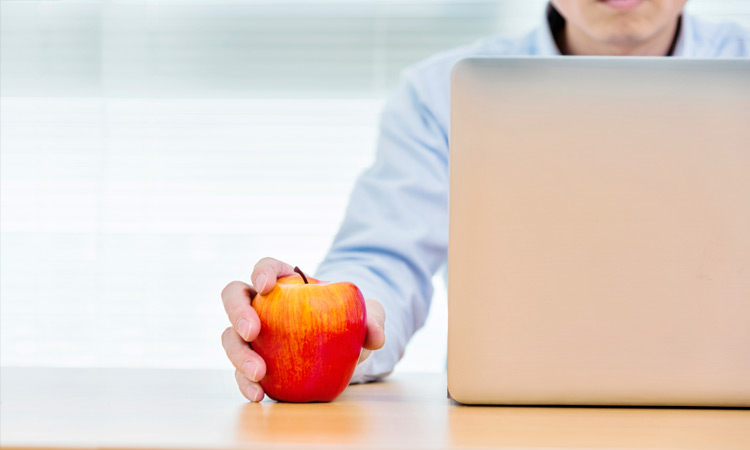In 2011, Shai Danziger, PhD, a cognitive neuroscientist at Tel Aviv University School of Management, and his colleagues published a groundbreaking paper in the Proceedings of the National Academy of Sciences that gave new insight into the old adage, “Justice depends on what the judge had for breakfast.” What Danziger did was to analyze more than 1,100 parole decisions made by eight judges at four Israeli prisons. He discovered that parole was granted to prisoners about one-third of the time, but there were extreme fluctuations through the course of the day. Specifically, if a prisoner was going in front of the parole board early in the morning or just after a food break, the probability of parole was 65 percent. For prisoners facing the parole board late in the day—or long after a food break—the probability of parole dropped to just about zero.
An apples-to-apples comparison revealed that prisoners who committed the same crime and who had the same sentence had different parole outcomes, depending on when the case was heard during the day.
Whether or not a judge should grant parole is a tough decision involving public safety and personal compassion, and the study is a clear example of making decisions in the face of what’s called “decision fatigue.” Danziger concluded, “As judges make repeated rulings, they show an increased tendency to rule in favor of the status quo.” In other words, tired judges just say no.
Journalist John Tierney, co-author of Willpower: Rediscovering the Greatest Human Strength, writes, “The more choices you make throughout the day, the harder each one becomes for your brain, and eventually it looks for shortcuts.” Impulsivity is a shortcut. In a shop-till-you drop situation where you’re stressed with decision making, you’re more likely to seek a shortcut by narrowing your choices—i.e., getting the cheapest or the best quality—and making that impulsive buy. The more judicious shortcut is to choose the least consequential option. The tired judges granted less parole to prisoners because they could always grant parole the next time.
Of course, the most judicious way to make good decisions is to avoid decision fatigue. Evolutionary psychologist Douglas Lisle, PhD, director of research for TrueNorth Health Center, explains that decision fatigue occurs in a specific area of the brain—during decision making. This area increases in activity and more glucose is consumed—which leads to a depletion of glucose specifically in this area. “The ‘power’ in willpower,” explains Lisle, “is actually brain glucose.” No brain glucose, no willpower. That doesn’t mean your entire brain is shutting down due to lack of fuel. It’s just a small area of the brain—and feelings may become more intense as self-control weakens. Like the warning light on your gas gauge, those feelings are a signal to take a break and get a snack.
In another now classic experiment, Todd Heatherton, PhD, a social neuroscientist at Dartmouth, had dieters look at pictures of food while their brain images were recorded. Next, they watched a comedy and had to suppress their laughter, an activity that is mentally draining. Afterward, they were shown pictures of food and their brains were imaged again, revealing more activity in the reward center of the brain and less in the impulse control area. In other words, when the dieters were mentally drained, the food was more appealing and their impulse control was down. Heatherton then wondered what would happen if the mentally drained brains got some glucose. To his surprise, all the brain changes were entirely reversed.
While it is tempting to grab sugary junk food, a soda or a candy bar when you are feeling mentally fatigued—that temptation is itself another sign of low fuel. The trick is to recognize the signal and, as Lisle, says, eat “foods with some substance—such as complex carbohydrates like a banana or some oatmeal or a bean burrito—that will be a gentle but steady blood-glucose rise and support your brain for a long steady ride.”
Plan Ahead for a Day of Tough Decisions
The more decisions you have to make, the less willpower you’ll have to make them with. So plan ahead for tough days with frequent breaks and healthy snacks. Planning meals and snacks into your day can avert the need for an emergency glucose fix—and subsequent crash.
Keep in mind that only a tiny part of your brain runs out of glucose during decision fatigue, so you may not need food. Other research shows a 10-minute walk will restore your mood and energy and decision making better than eating a candy bar. So if someone is pushing for an answer, and you feel the surging emotions of low brain fuel, simply walk away. Ten minutes later, the situation may feel entirely different.
Pay attention to the times you may be apt to experience a glucose low, like midmorning or midafternoon. During these times try to avoid planning things that require a big decision-making effort.
Remember to check in and see if you feel mentally fatigued. If so—and you really have to make a decision—the judicious answer is likely no.
“The Fuel Of Good Decision Making ” by Mark Liskey was originally published on Spirituality & Health.



